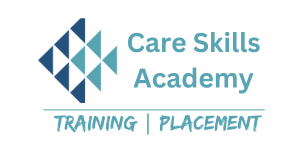In today’s fast-paced world, cars are essential to our daily lives, and maintaining them is critical for both safety and performance. With vehicles becoming more advanced, skilled technicians are in high demand to keep them running smoothly. If you’re passionate about cars and looking for a hands-on career in the automotive industry, a Car Repairing Course can be your gateway to success.
Why Choose a Car Repairing Course?
A car repairing course equips you with the knowledge and skills to diagnose, repair, and maintain vehicles. From understanding the fundamentals of a car’s engine to mastering the latest automotive technologies, this course offers a comprehensive education tailored to today’s evolving automotive needs.
Whether you’re just starting or looking to advance your career in automotive repair, enrolling in a car repairing course opens doors to many opportunities. You’ll learn how to service various vehicle systems, troubleshoot mechanical problems, and apply practical repair techniques—skills that are highly valued across the industry.
What You Will Learn
A car repairing course typically covers a wide range of topics to give you a strong foundation in automotive repair. Here are some of the key areas of study:
- Basic Automotive Systems The course begins with an introduction to the basic systems of a car, including the engine, transmission, suspension, and braking systems. You’ll learn how these components work together to make a car function and how to identify and repair common issues.
- Engine Diagnostics and Repair The engine is the heart of any vehicle, and learning how to troubleshoot and repair engine problems is essential for any automotive technician. The course will cover engine diagnostics, repairs, and performance optimization. You’ll gain hands-on experience working with internal combustion engines, learning how to replace parts, adjust timing, and optimize fuel efficiency.
- Electrical Systems Modern cars rely heavily on complex electrical systems, including wiring, sensors, and onboard computers. Understanding how to diagnose and fix electrical issues is a crucial skill in today’s automotive industry. You’ll learn how to work with multimeters, test circuits, and troubleshoot problems like faulty wiring, blown fuses, and malfunctioning sensors.
- Transmission and Drivetrain Repair The transmission and drivetrain are key components of a vehicle’s performance. In a car repairing course, you’ll learn about both manual and automatic transmissions, how they work, and how to diagnose and repair transmission issues such as slipping gears or fluid leaks.
- Brake and Suspension Systems Safety is paramount in automotive repair, and a car repairing course will teach you how to maintain and repair a car’s brake and suspension systems. You’ll learn about disc and drum brakes, anti-lock braking systems (ABS), and how to diagnose issues like worn brake pads, faulty calipers, or damaged suspension components.
- Heating, Ventilation, and Air Conditioning (HVAC) Maintaining a car’s HVAC system ensures a comfortable driving experience. The course will cover how to service and repair heating and cooling systems, including refrigerant handling, compressor repairs, and troubleshooting air conditioning issues.
- Advanced Diagnostic Tools and Techniques In modern vehicles, advanced diagnostic tools are required to pinpoint problems quickly and accurately. The course will introduce you to these tools, including OBD-II scanners and diagnostic software, teaching you how to interpret error codes and resolve complex issues.
Hands-On Experience
One of the most valuable aspects of a car repairing course is the hands-on training. You’ll get to work on real vehicles, practicing repairs under the supervision of experienced instructors. This practical experience is crucial for building confidence and preparing you for the realities of working in an automotive shop or starting your own repair business.
Hands-on learning also ensures that you’re familiar with the latest tools and equipment used in the industry, from diagnostic machines to specialized tools for engine or transmission work. This practical training makes you job-ready upon completion of the course.
Career Opportunities
After completing a car repairing course, you’ll have a wide range of career opportunities to explore. Some of the roles you can pursue include:
- Automotive Technician: Work in repair shops or dealerships, diagnosing and fixing mechanical and electrical issues in cars.
- Service Advisor: Assist customers in identifying repair needs and managing the repair process at automotive service centers.
- Fleet Maintenance Technician: Maintain and repair vehicles for companies with large fleets, such as delivery services or transport companies.
- Automotive Parts Specialist: Work with parts suppliers to ensure that repair shops have the components they need for timely repairs.
- Self-Employment: Start your own car repair business, offering services directly to car owners.
With the automotive industry constantly evolving, the demand for skilled technicians will continue to grow. Completing a car repairing course ensures you stay ahead of the curve, equipping you with the knowledge and expertise to thrive in this dynamic field.
Conclusion
A Car Repairing Course is more than just a technical education—it’s a pathway to a rewarding and in-demand career. With comprehensive training in automotive systems, engine repair, diagnostics, and hands-on experience, you’ll be well-prepared to enter the industry and excel as a car repair professional. Whether you want to work in a repair shop, start your own business, or explore other roles in the automotive sector, this course provides the foundation you need for a successful future in car repair.

